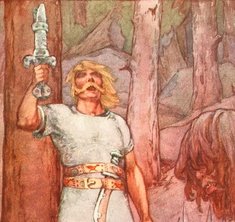Featured Quizzes
User Quizzes
Create Quiz
Data and Charts
Badges and Games
About JetPunk
JetPunk Shop
Dark Mode
Random Mode
Keyboard shortcut: Command/Ctrl + Shift + R

Languages Most Similar to English
Which languages have the highest level of similarity to English (in written form).
Only includes languages which are official in at least one country
Source: elinguistics.net
Index on a 0 to 100 scale with lower numbers indicating higher similarity
Rate:
Featured Quiz
Last updated: March 12, 2020
You have not attempted this quiz yet.
More quiz info >>
| First submitted | March 12, 2020 |
| Times taken | 27,712 |
| Average score | 70.0% |
| Rating | 4.24 |
2:00
Enter answer here
0
/ 10 guessed
Time Used
00:00
Best Time
00:00
The quiz is paused. You have remaining.
Scoring
You scored / = %
This beats or equals
% of test takers
also scored 100%
The average score is
Your high score is
Your fastest time is
Keep scrolling down for answers and more stats ...
|
New and Popular
Save Your Progress
Copyright H Brothers Inc, 2008–2024
Contact Us | Go To Top | View Mobile Site

https://www.rijksoverheid.nl/onderwerpen/erkende-talen/vraag-en-antwoord/erkende-talen-nederland
Frisian is an official language in (one of the provinces of) the Netherlands, in the Dutch equivalent of the government page it's stated even as such with so many words. I assume you have chosen to ignore languages if they are not the official language of the entire country?
"Butter, rye bread and green cheese, whoever cannot say that is not a genuine Frisian" was a phrase used by the Frisian Pier Gerlofs Donia during a Frisian rebellion (1515–1523). Ships whose crew could not pronounce this properly were usually plundered and soldiers who could not were beheaded by Donia himself.
And there is so much to take into consideration. Sound matters more than spelling imo and if it is the same word that dropped a part it often is closer than something more different alrogether(english used to use more prefixes like dutch as in feel/feeling-voel/gevoel (dutch) the "ge" has dropped in english (and added -ing). Danish word be feeling-følelse
My pen is my wonderland,
Word water in my hand.
In my pen is wonder ink.
Stories sing. Stories blink.
My stories loop. My stories stop.
My pen is my wonder mop.
Drink letters. Drink my ink.
My pen is blind. My stories stink.
(I don't think the last word is really "stink", but it works, and after a line like "my pen is my wonder mop" it seems more appropriate)
only since 1925 it is officially considered a language, before that it was seen as a dutch dialect. (Did not know it's official recognition was this late actually)
Don't ask me how or why but I feel like somehow english is more recognizable to dutch people than dutch is to "english" people, and I don't mean as a result of learning the language or exposure to it, but intuitively. (How it would be in the unrealistic case of zero exposure to the other language)
For those trying to see how similar languages are by Wikipedia, do you know how to pronounce those languages? Would you know that jag in Danish sounds almost exactly like I?
West Frisian might (but mainly spoken):
Brea, bûter en griene tsiis / Bread, butter and green cheese.
Also, if anyone is interested, the numbers here don't really mean all that much. It's more of a proof of concept - i.e., if you set the parameters and methodology /very/ carefully, is it theoretically possible to give a numerical 'relatedness' value for a pair of languages - the answer being yes. Which is pretty cool in a way, but there are a lot more ways a pair of languages can be related, beyond just sound correspondences in a very limited set of words - for instance syntax, morphology, or lexicon. This is why Danish is so surprisingly high despite being so unintelligible to an English speaker. In reality, 'relatedness' is a very complex factor which cannot really be quantified in a helpful way.
https://www.lexico.com/definition/letzeburgesch
and actually is one of the two official languages of the Netherlands.